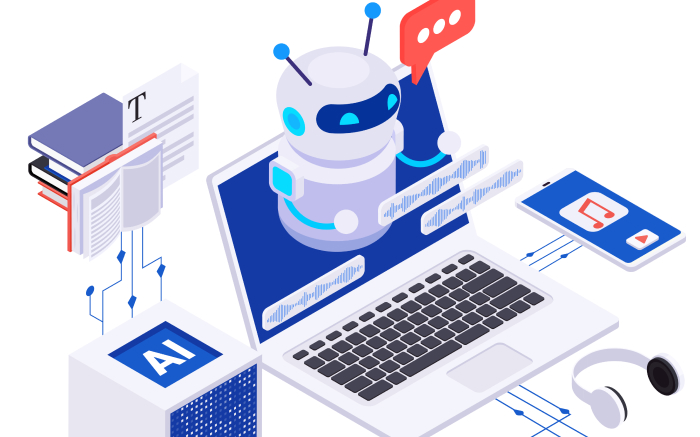Machine Learning Development: Empowering Innovation and Efficiency
 Sphinx Shivraj
Sphinx Shivraj
Machine learning development has revolutionized the way businesses operate, enabling them to harness the power of data to drive innovation, enhance decision-making, and optimize processes. In today's digital age, machine learning has become a cornerstone of technological advancement, offering unprecedented opportunities for organizations to extract valuable insights from vast amounts of data. This article delves into the realm of machine learning development, exploring its significance, trends, and the role of machine learning as a service and machine learning developers in shaping the future of AI-driven solutions.
The Significance of Machine Learning Development
Machine learning, a subset of artificial intelligence, empowers systems to learn from data and improve their performance without explicit programming. This capability has immense implications across various industries, from healthcare and finance to marketing and manufacturing. By leveraging machine learning algorithms, organizations can automate tasks, predict outcomes, detect patterns, and personalize user experiences, leading to enhanced efficiency, accuracy, and competitiveness.
Trends in Machine Learning Development
The field of machine learning is constantly evolving, driven by advancements in algorithms, computing power, and data availability. Some notable trends shaping machine learning development include:
Deep Learning: Deep learning, a subset of machine learning, has gained prominence for its ability to process complex data structures and deliver superior performance in tasks such as image recognition, natural language processing, and speech recognition.
Explainable AI: As machine learning models become more sophisticated, the need for transparency and interpretability has grown. Explainable AI techniques aim to make machine learning models more understandable and trustworthy, especially in critical applications like healthcare and finance.
Federated Learning: With the rise of privacy concerns and data regulations, federated learning has emerged as a promising approach to training machine learning models on decentralized data sources without compromising data privacy.
AutoML: Automated machine learning (AutoML) tools are simplifying the process of building machine learning models by automating tasks such as feature engineering, model selection, and hyperparameter tuning, making machine learning more accessible to non-experts.
Machine Learning as a Service (MLaaS)
Machine learning as a service (MLaaS) is a cloud-based offering that enables organizations to access machine learning tools, infrastructure, and expertise without the need for extensive in-house resources. MLaaS providers offer pre-trained models, data processing capabilities, and scalable computing resources, allowing businesses to accelerate their machine learning initiatives and focus on deriving insights from their data.By leveraging MLaaS, organizations can:
Reduce Time-to-Market: MLaaS platforms provide ready-to-use machine learning models and tools, enabling businesses to deploy AI solutions faster and stay ahead of the competition.
Lower Costs: By outsourcing machine learning infrastructure and expertise to MLaaS providers, organizations can avoid significant upfront investments in hardware, software, and talent.
Scale Effortlessly: MLaaS platforms offer scalable computing resources, allowing organizations to adapt to changing workloads and data volumes without the need for extensive infrastructure upgrades.
The Role of Machine Learning Developers
Machine learning developers play a crucial role in designing, implementing, and optimizing machine learning algorithms and models. These professionals possess a deep understanding of statistics, mathematics, programming, and domain-specific knowledge, enabling them to create innovative solutions that address complex business challenges.Key responsibilities of machine learning developers include:
Data Preparation: Cleaning, preprocessing, and transforming data to make it suitable for machine learning algorithms.
Model Selection: Choosing the appropriate machine learning algorithms and techniques based on the problem domain and data characteristics.
Model Training: Training machine learning models on labeled data to learn patterns and make predictions.
Model Evaluation: Assessing the performance of machine learning models using metrics such as accuracy, precision, recall, and F1 score.
Model Deployment: Integrating machine learning models into production systems and ensuring their scalability, reliability, and performance.
In conclusion, machine learning development is a dynamic and transformative field that holds immense potential for driving innovation, efficiency, and competitive advantage. By embracing machine learning as a service and collaborating with skilled machine learning developers, organizations can unlock the full power of AI and propel their businesses into the future of intelligent automation and data-driven decision-making.
Subscribe to my newsletter
Read articles from Sphinx Shivraj directly inside your inbox. Subscribe to the newsletter, and don't miss out.
Written by
